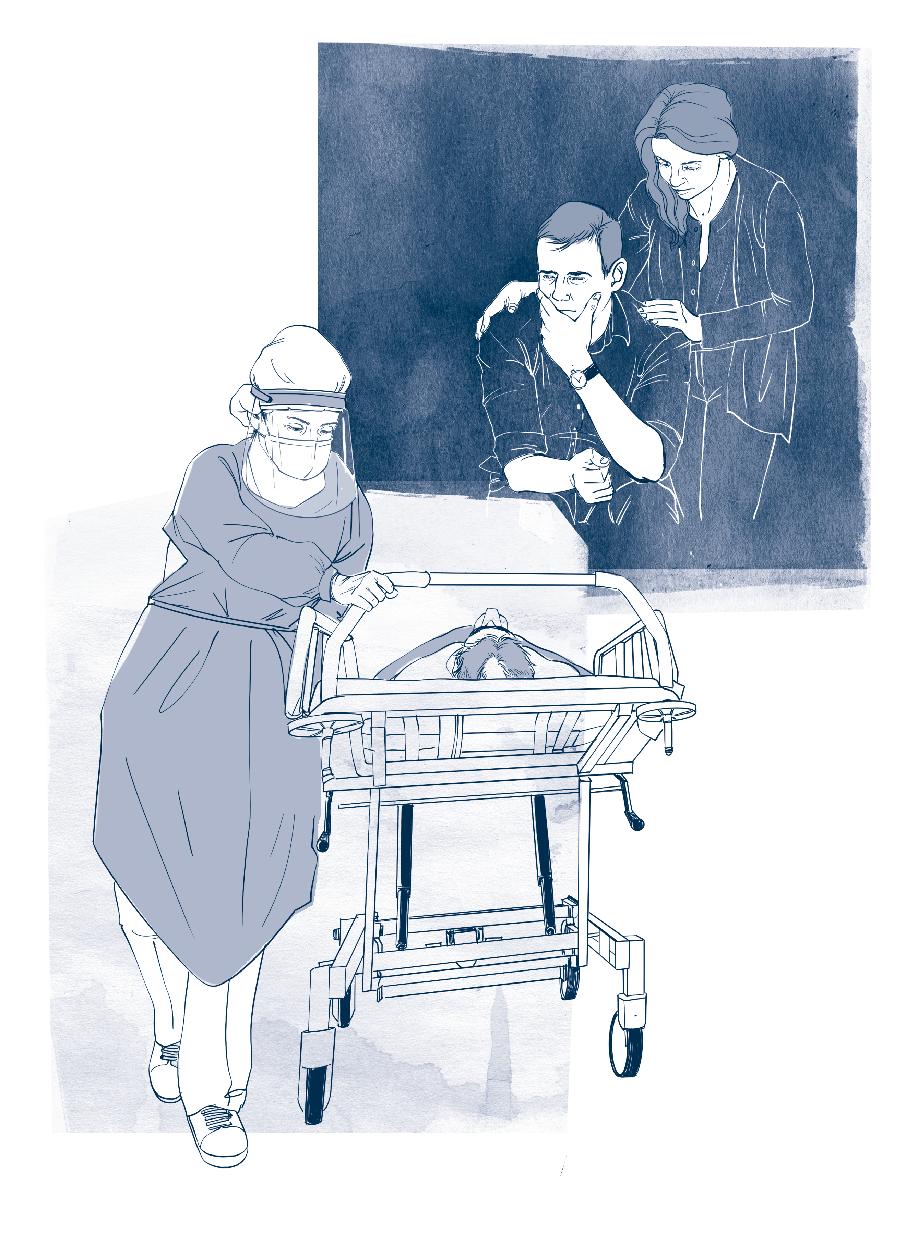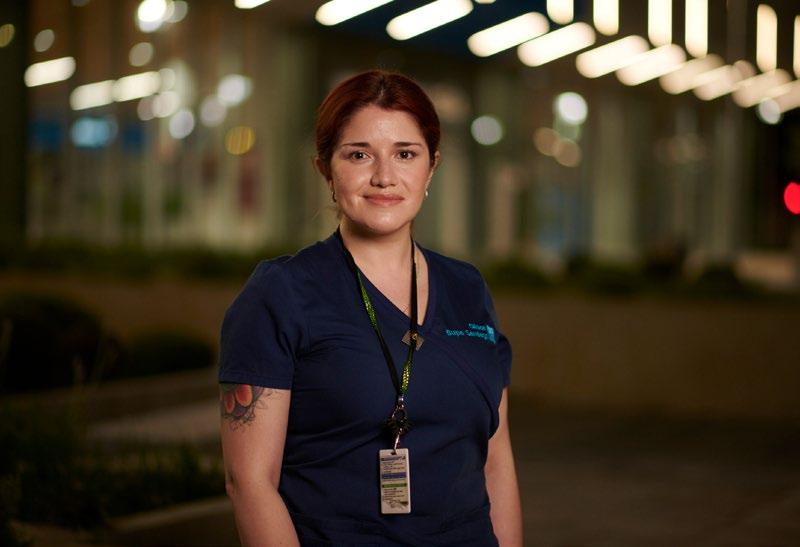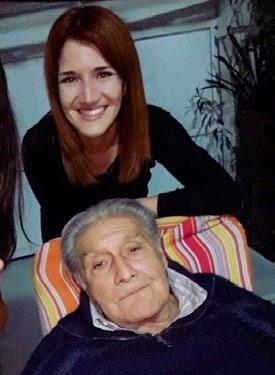
4 minute read
We just hoped for a miracle
natalia castañeda Nurse Bupa Santiago Hospital
Looking after Covid patients was initially a professional challenge and a learning curve for me. Over time, I also realised that it was also an emotional challenge, because of the fact that patients were alone. Worse than being sick was the anguish of not being able to see their loved ones or have anyone with them. That is such an important factor in patient recovery. At the start of the pandemic, some of my colleagues passed the virus to their families. The teams began to diminish in numbers and we had to take on new people. It was like an earthquake. It was all very draining. I had stopped seeing my grandparents when I started working with Covid patients, because I didn’t want to expose them to the virus. At the beginning I thought about even moving out of my home, as I live with my elderly mother and my young nieces. I was so worried about passing the disease to them and would be so careful when I got back from a shift. I remember in May my grandmother and my mother were a bit sad that they wouldn’t be able to spend Mother’s Day together, but that was the way it was.

I knew what was likely to One day my grandfather, Osvaldo, who is happen next in technical 88 years old, started to have sleeping problems terms, but I was his and didn’t feel well. He had a chronic lung problem, and a medical team came to see him granddaughter and I didn’t at his home. The diagnosis was pneumonia. want him to die. Inside me, I Because of the pandemic and his symptoms, the whole family had to have a pcr test. The was hoping for a miracle. next day we got the news: the test was positive for Covid. He had been out to collect his pension a few days earlier. The trip out was only about half an hour, but it was enough to infect everyone. The week of 20 May, my grandfather Osvaldo was very ill and my family knew they had to do something, because he was too unwell to stay at home. I decided to take him to the clinic where I worked and where I have colleagues. Where would he get the best care? It was a really difficult week for the country because there weren’t enough beds and we were at the peak of the infections, and they were setting up ICU beds in the emergency unit. I had never seen people sitting on seats outside a hospital before. We had to find more spaces for
SANTIAGO — CHILE

more patients, because we had to move them from the emergency unit. At first, my grandfather had to do wait at the hospital, where he had been taken urgently, for an intensive care bed. He was always very aware and never got confused. He knew very well where he was and what worried him the most was that he might not be allowed home. He said to me: Take me home, I don’t want to be here. I told him: Tata, I can’t take you home - I would if I could. I knew what was likely to happen next in technical terms, but I was his granddaughter and I didn’t want him to die. I was hoping for a miracle. It was very sad because normally, as a nurse, I would be giving hope to the families, but this time I was both a nurse and a family member. I talked to the medical team about treatment options, which I then passed on to my family – my mother and her brothers – who had always trusted me. Things started to get worse, and he needed oxygen and became distressed. That was the second last day i saw him. One of the doctors told me that there was the chance to move him to the intensive care unit to put him on mechanical, non-invasive ventilation, which would help him to breathe but wasn’t like intubation. There was nothing else for it, because he had severe pneumonia and an underlying lung disease that was hardly letting him breathe. He died the next day. My grandfather, Osvaldo, was like a father to me. He and my grandmother, Edelmira (even though everyone calls her Rosa) brought me up for 20 years. So his death was very painful to me. I am consoled by the thought that I really made the most of them both. My grandmother, who had Alzheimer’s, was always asking me: You took Osvaldo away, when are you bringing him back? She must have felt like a part of her had gone with him. They had 70 years together and I know they were very happy. I am happy I had the chance to say goodbye to him, and he was happy to have someone he knew by his side. He was not alone. I wanted to be a paediatric nurse, but life brought me adult patients. If that hadn’t happened, I probably wouldn’t have been able to be at my grandfather’s side. I feel I was able to bring dignity into his last days. I am happy he could slip away peacefully with his hand in mine. Then I got sick myself. But that’s another story. �









